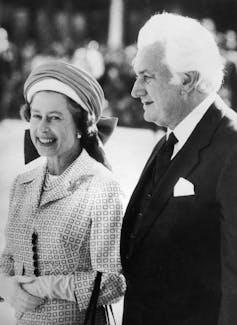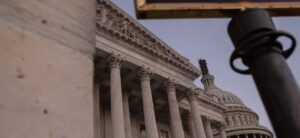
On November 11, 1975, Australian history took a dramatic turn when Prime Minister Gough Whitlam was dismissed from office by Governor-General John Kerr. This event, known as “the Dismissal,” has become a defining moment for many Australians, akin to significant historical events such as the assassination of John F. Kennedy. Recent reflections from those involved, including historian and former diplomat Lachlan Strahan, highlight the emotional and political turmoil surrounding that day.
Strahan recounts being picked up from his primary school in Melbourne by a neighbour, as his mother was too distraught to drive. Similarly, journalist Margo Kingston recalls pulling the covers over her head that night, listening to the radio in disbelief. The Dismissal resonated deeply across the nation, embedding itself in the collective memory of Australians, who remember exactly where they were when they heard the news.
Tensions had been building for weeks prior to the Dismissal. The opposition, led by Malcolm Fraser, had blocked the government’s budget in the Senate, pushing Whitlam to refuse a general election. As pressure mounted, questions swirled about whether Whitlam would concede or if some Liberal senators would break ranks. On the morning of Remembrance Day, Whitlam was preparing to propose half-Senate elections, a move seen as unlikely to resolve the impasse. Unbeknownst to him, Kerr had already decided to dismiss him.
At 1 PM on that fateful day, Kerr delivered the news to Whitlam at Government House. Whitlam’s impassioned response on the steps of Parliament House that afternoon is still remembered. He proclaimed, “Well may we say God Save the Queen, because nothing will save the governor-general,” while denouncing Fraser as “Kerr’s cur.” The atmosphere in Canberra was electric, with demonstrators flocking to the city and political offices buzzing with activity.
In the wake of the Dismissal, many Labor supporters gathered at Charlie’s restaurant, a popular Canberra venue, grappling with shock and anger. Whitlam had urged the crowd to “maintain your rage and enthusiasm through the campaign,” a call that resonated throughout the election period. Despite an initial sense of momentum for Labor, opinion polls indicated a decline in public support for the party. Whitlam’s government, known for its landmark reforms in health, education, and welfare, faced criticism for administrative disarray and a lack of discipline.
Fraser’s rise to power, while significant, was seen through the lens of his controversial methods. Observers noted that Kerr’s actions, particularly his failure to inform Whitlam of his intentions, were widely condemned. Critics labeled Kerr’s decision as premature and deceitful, leading to a legacy of distrust. Even Fraser later reflected on the situation, suggesting that Kerr should have been more transparent with Whitlam regarding the potential consequences of his actions.
The Dismissal left deep political fractures that persisted for years. While some argued that Whitlam’s government was a cautionary tale for future Labor administrations, the party managed to recover more rapidly than expected, regaining office within a decade. The constitutional structure remained largely unchanged, with the governor-general retaining the reserve powers to dismiss a government, although a successful referendum was passed to prevent state governments from exploiting Senate vacancies.
Looking back, the Dismissal is viewed as a complex interplay of political ambition, personal dynamics, and historical significance. As the nation reflects on this pivotal event nearly half a century later, voices from that era continue to echo. David Solomon, Whitlam’s press secretary at the time, maintains, “I haven’t changed. I’ve become, in fact, even more concerned about what Kerr did.”
Today, younger generations, such as those studying at the Australian National University, find the events surrounding the Dismissal fascinating. Frank Bongiorno, a history professor, notes that while it might feel like ancient history, it holds significant lessons about political power dynamics.
As Australia approaches the 50th anniversary of the Dismissal, it remains a topic of intense interest and debate. The combination of influential figures like Whitlam, Fraser, and Kerr in such a unique historical context makes a repeat of such events highly unlikely. The lessons learned from this chapter of history continue to shape Australian politics, ensuring that the Dismissal is remembered not only for its immediate consequences but also for the long-lasting impact it had on the nation’s political landscape.






